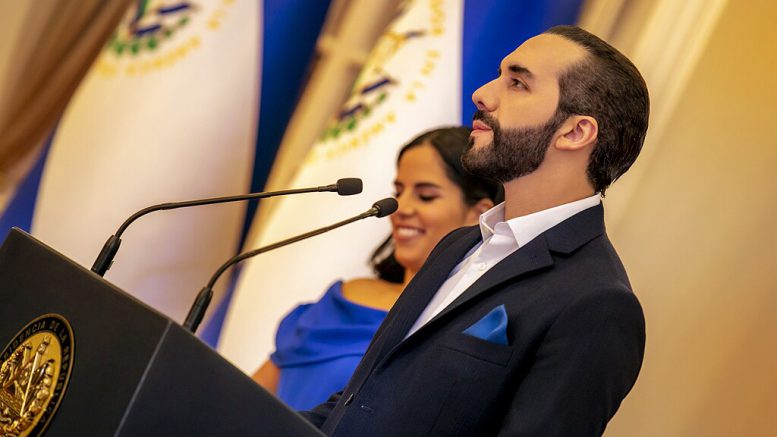El Salvador, which became the first country in the world to ban metals mining, could be losing out on transformational wealth due to its massive unearthed gold deposits, President Nayib Bukele says.
In a speech earlier this week, Bukele said that the Central American nation is sitting on unmined gold worth as much as US$3 trillion, which is roughly over 8,800% of its current GDP.
“We’ve also found gallium, tantalum, tin and many other materials needed for the 4th and 5th industrial revolution,” he added.
This lost value, says Bukele, could be used to help clean up El Salvador’s rivers. According to government data, about 95% of the rivers in El Salvador are contaminated. Bukele argues that the focus should be on cleaning up those rivers instead of preventing further pollution by banning mineral extraction.
His predecessor, former left-wing rebel Salvador Sanchez Ceren, imposed the mining ban in 2017 following pressure from rural communities who had expressed concerns about harmful chemicals like cyanide and mercury used in mining practices.
X posts
Now, Bukele, the first president not elected as a candidate of one of El Salvador’s two major political parties since 1989, has set out to revoke the ban. Through his official X account, he has been repeatedly pointing out the massive economic benefits of the nation’s natural resources.
Prior to his recent speech, Bukele made a series of posts highlighting El Salvador’s gold potential, including an uncited study which showed the country has potentially the largest gold deposits per square kilometre in the world.
“God placed a gigantic treasure underneath our feet,” he wrote on X, adding that the mining ban was “absurd.”
Bukele went on to say that mining just 4% of the country’s gold deposits would bring in US$131 billion, equivalent to 380% of its GDP.
“If we make responsible use of our natural resources, we can change the economy of El Salvador overnight,” he wrote a few days later.
However, as his predecessor and other Central American nations have recently found out, any pro-mining proposal can be met with strong opposition.
There’s a difference between mining in Chile’s Atacama Desert and an open-pit mine in the city of Chalatenango, Pedro Cabezas, leader of the Central American Alliance Against Mining, told AFP this week.
A potential lift of the mining ban would not be the first radical change under Bukele’s leadership. In 2021, he passed a law that made bitcoin legal tender, making El Salvador the first nation to do so.


Be the first to comment on "El Salvador’s mining ban stifles US$3 trillion in unearthed gold, president says"